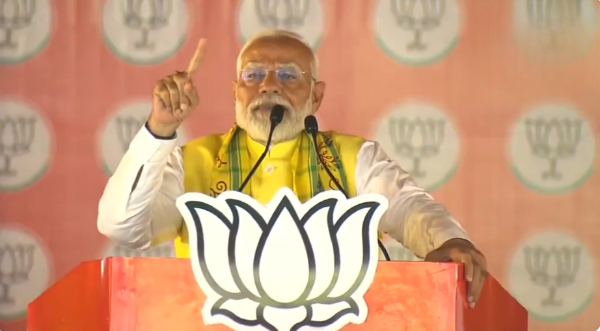In a recent public rally held in East Champaran, Bihar, Prime Minister Narendra Modi delivered a powerful speech that highlighted the stark contrast between the lives of the rich and the poor in India.
Modi began his address by pointing out the vast wealth accumulated by certain individuals over the past six decades. He spoke of grand palaces and Swiss bank accounts, symbols of opulence and luxury that stand in stark contrast to the living conditions of the average Indian citizen.
“Over the past 60 years, these individuals have built magnificent palaces and amassed fortunes in Swiss bank accounts,” Modi said. This statement was a clear reference to the corruption and wealth disparity that has plagued the nation for decades.
The Prime Minister then turned his attention to the state of education in the country. He lamented the fact that while the children of these wealthy individuals have the privilege of studying abroad, many Indian children lack even basic schooling facilities.
“Your children did not have a school to study, but their children continued studying abroad,” he said. This poignant remark underscored the deep-seated inequality in the Indian education system, where access to quality education is often determined by one’s socio-economic status.
Modi also expressed his concern for the plight of the poor. He noted that despite their hardships and struggles, the wealthy seemed indifferent to their suffering. “The poor were in trouble and difficulty, but it did not make any difference to them,” he said.
Through his speech, Modi painted a vivid picture of the socio-economic divide in India. His words served as a call to action, urging the nation to address these disparities and work towards a more equitable society.
The rally in East Champaran was more than just a political event. It was a platform for the Prime Minister to voice the concerns of the common man and to advocate for change. As the nation moves forward, it is clear that addressing these issues will be crucial in shaping India’s future.



